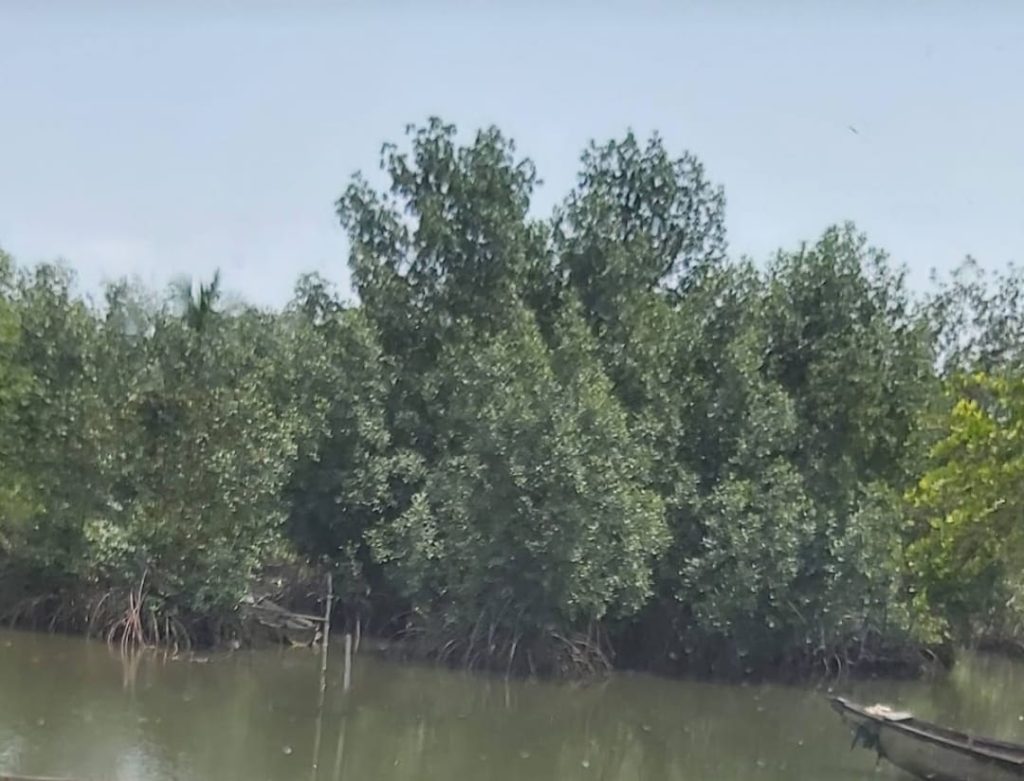Global Pollution Expert Marks 2023 International Day for the Conservation of the Mangrove Ecosystem

PHOTOCREDIT: FIELDWORK
The International Day for the Conservation of the Mangrove Ecosystem is an annual holiday recognized by the United Nations Educational, Scientific and Cultural Organization (UNESCO) on 26 July. The decision to establish this day was made during the General Conference of UNESCO in 2015.
Notably, this year's conference was significant as it featured the expertise of the Global Pollution Expert, focusing on the theme of "Restoring and Protecting the Niger Delta Mangroves." Distinguished speaker Professor Joseph Legend delivered the keynote address at this year's event, which was organized by the Environmental Advocates of Nigeria under the same theme of Restoring and Protecting the Niger Delta Mangroves.
During his speech, Professor Joseph Legend Mfon emphasized that the observance of The International Day for the Conservation of the Mangrove Ecosystem annually on 26 July, and the primary objective of this event is to enhance public understanding regarding the significance of mangrove ecosystems, which are characterized as an exceptional, delicate, and endangered ecological system.
Furthermore, it seeks to advocate for the implementation of sustainable strategies that ensure the preservation, conservation, and responsible utilization of these ecosystems, he added
According to Professor Joseph Legend Mfon, a distinguished expert in the field of Environmental Management, the significance of mangroves encompasses several aspects.
Firstly, coastal forests play a crucial role in supporting diverse wildlife populations, safeguarding human communities, and combating the adverse effects of climate change.
Moreover, mangroves possess the ability to store three to five times more carbon within a given area of soil than other forest types. A thriving mangrove forest can effectively sequester approximately 2,016 pounds of carbon per acre per year, thereby preserving these carbon deposits in the soil for an extended period, potentially spanning millennia.
Additionally, the presence of mangroves serves as a natural barrier, providing coastal regions with inherent protection against the destructive impacts of storms and flooding.
Furthermore, mangroves serve as habitats for a wide range of wildlife species, ranging from aquatic creatures like turtles, fish, and sharks to avian species and even tigers.
Lastly, the stabilizing effect of mangroves on coastal sediments acts as a preventative measure, mitigating the erosion of land along coastlines.
Excerpt of the speech below
Nigeria has extensive mangrove forests in the coastal region of the Niger Delta. That Mangrove is considered one of the most ecologically sensitive regions in the world. The Niger Delta mangrove forest is situated within a deltaic depositional environment.
These mangrove forests serve a critical role in regional ecological and landscape composition and support subsistence-gathering practices and market-based income opportunities. Anthropogenic development threatens the survival of Niger Delta mangrove populations.
Mangroves are important players in some of the greatest challenges facing the world today. They provide a defense between land and sea, absorb carbon, contribute to economic and food security, and are home to some of the rarest and most colorful species. But mangroves are disappearing at an accelerating rate.
Governments around the world that are seeking to fight climate change while providing other significant benefits to ecosystems and coastal communities should consider protecting and restoring mangrove forests.
Like seagrasses and salt marshes, mangroves are coastal wetlands that serve as nursery and feeding grounds for a broad range of species, storm buffers for communities, and highly efficient carbon sinks—a big draw for Nigeria looking to implement nature-based climate action. Yet, despite the numerous benefits that mangroves provide, they are some of the most threatened ecosystems on Earth.
Important to note; that half of the world’s mangroves have been lost in the past 50 years because of habitat destruction, coastal development, and pollution.
However, despite exploitation, fragmentation, and degradation, no policy has been enacted well enough with the sole purpose to conserve endangered mangrove forests in the Niger Delta region. Although neither federal or state institutions have ratified protection efforts, citizens of the Niger Delta states have banded together in attempt to defend the depreciating mangrove populations.
Well, it’s no secret that plastic is overwhelming our oceans as it enters via rivers and streams at unprecedented rates. Much of this plastic will eventually wash up into the mangroves (whether it be from the ocean or from land).
Once mangroves die, it becomes challenging to reintroduce and regrow them in certain areas. That’s why it’s best we try to conserve the ones we already have. This means we need to reduce pollution in mangrove environments, stop oil spillage, don’t cut branches or uproot trees for development, and don’t tie boats to the mangroves.
Additionally, during strong storms, mangroves absorb the impact of wind, waves, and tides – thus protecting the land and manmade structures nearby. You might be wondering, what makes mangroves so special anyway? These are the top reasons why mangroves are so important and why we should protect and conserve them.
If you live in an area where mangroves are present, chances are you might have the opportunity to participate in a mangrove cleanup. These events aim to involve the local community in removing trash and pollution from the environment.
We believe that any activity that engages the local community in conservation is a net positive. It instills knowledge, passion, and a deeper understanding of our relationship with nature and how to conserve it.
